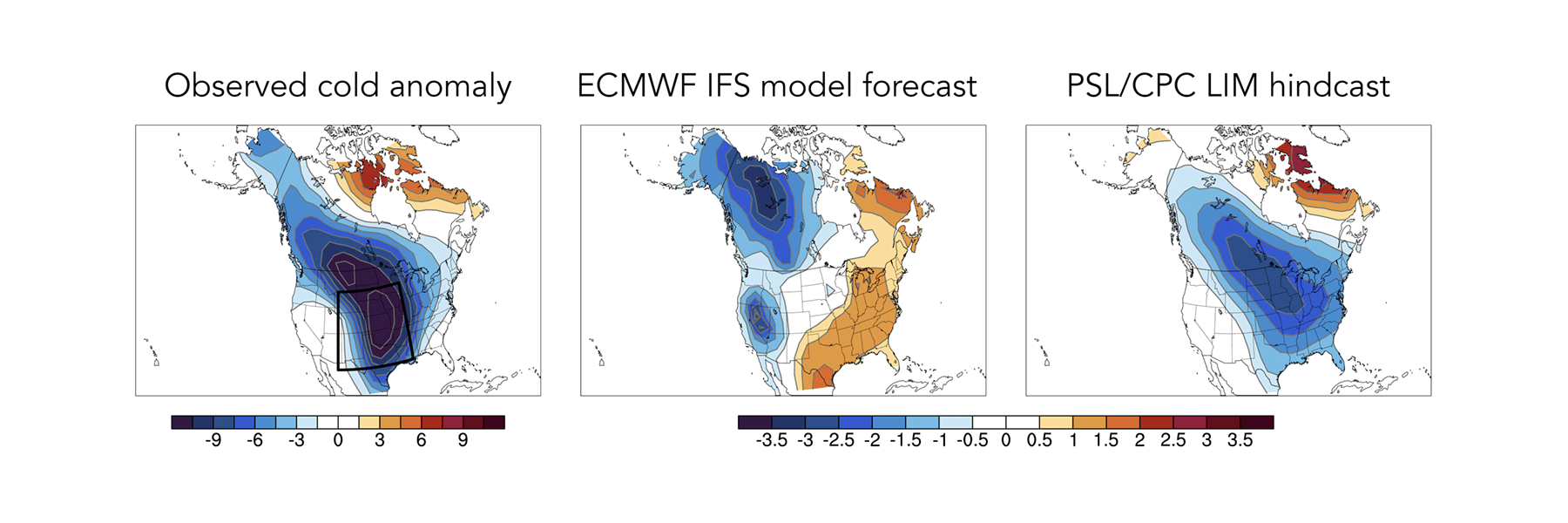Atmosphere–Ocean Processes and Predictability
The connection between Earth's oceans and atmosphere has a direct impact on the weather and climate conditions experienced around the globe. For example, warmer-than-normal ocean temperatures in the tropics can alter weather patterns, causing drought over the western US, while bringing extreme rains to the southeast. Understanding the processes driving these interactions and their predictability is a key component in improving forecasts and warnings. This information can help keep communities safe and guide decisions related to such issues as water management, emergency planning, and ecosystem resilience.
What We Do
PSL's Atmosphere-Ocean Processes and Predictability Division investigates the roles of ocean processes, air-sea interaction, and tropical-extratropical exchanges on climate variability and predictability. We use a combination of data analysis and modeling to better understand and characterize physical mechanisms driving Earth's weather and climate, on time scales ranging from days to decades both to advance understanding and improve forecasts.
Analyzing
Tropical Variability
We study multiple aspects of tropical variability including El Niño and La Niña warm and cold periods in the equatorial Pacific, as well as the Madden Julian Oscillation, a large-scale weather pattern that progresses eastward across the tropics, and how these phenomena influence weather patterns outside of the tropics, including the United States.
Investigating
Marine Ecosystem Impacts
We are investigating the impacts of climate variability and change, including the causes and effects of marine heat waves (periods of exceptional warmth in the ocean) on marine ecosystems.
Characterizing
Sources of Predictability
We evaluate tropical sources of predictability in mathematical models on time scales ranging from weeks to decades and identify “windows of opportunity” when high forecast skill may be predictable in advance.
Predicting
Ocean Conditions
Statistical and physics-based models are used to predict the state of the ocean, including temperature and sea level, from seasons to years. Data-based models are also being developed to provide useful forecasts and help us better understand climate processes.
This is shared
Designing
Web-Based Systems
Online applications are being developed for displaying and analyzing present day atmosphere and ocean variability and future climate states simulated by computer models.
Developing
Tropical Diagnostics
We develop analysis tools to assess interactions between tropical clouds, storms, winds, and atmosphere–ocean and atmosphere–land processes that are used as targets for global model development.
This is shared
The February 2021 Cold Air Outbreak in the United States: a Subseasonal Forecast of Opportunity, By John Albers (PSL/CIRES) et al., 2022, Bull. Amer. Meteor. Soc. Learn more




